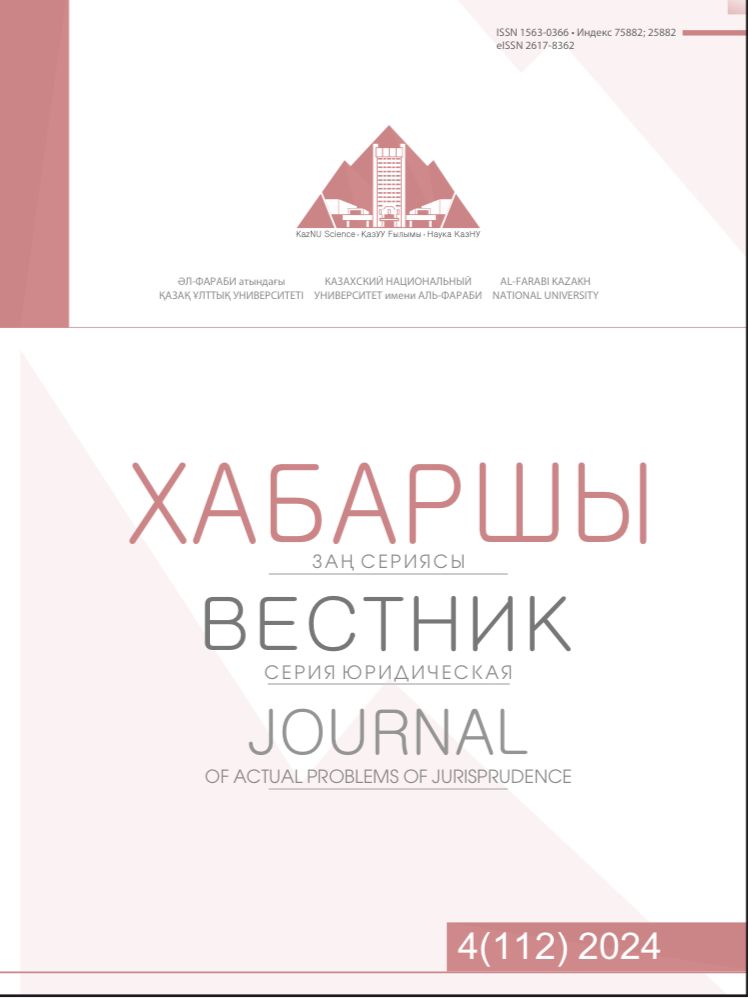THEORETICAL AND LEGAL DIMENSION OF THE MIGRATION PROCESS OF MATERNAL MIGRATION
DOI:
https://doi.org/10.26577/JAPJ2024.112.i4.a5Abstract
This article presents the theoretical and legal dimension of the migration process of maternal migration, exploring the legal aspects and social consequences associated with the movement of mothers and their children. In recent decades, there has been an increase in migration flows caused by various factors, such as economic difficulties, social problems and conflicts. One of the key problems is the issue of legal regulation that ensures the protection of the rights of migrant mothers. The reasons for migration, such as economic opportunities, availability of educational opportunities and social security, are considered in detail. The methodological basis of the study includes an integrated approach combining quantitative and qualitative methods of analysis. In particular, the authors use comparative legal analysis, which allows identifying the features of legal regulation in different countries and assessing its impact on migration processes. Sociological research methods are also used to understand the social context of maternal migration. The literature review analyzes key works in the field of migration law and social policy devoted to maternal migration. In particular, the shortcomings of existing studies related to a narrow specialization in certain aspects of migration are noted. A comprehensive analysis of the migration process, including the stages of preparation, movement and adaptation of migrant mothers, is conducted. Both economic and social aspects are considered, as well as the influence of cultural factors on migration behavior. It analyzes how various circumstances (economic, political, social) influence the choice of migration route and living conditions in a new country. The next section focuses on the role of the state and legal institutions in ensuring the rights of mothers at all stages of the migration process. The main problems faced by migrant mothers in making legal decisions and accessing social services are highlighted. The conclusion summarizes the results of the study, focusing on the need to improve legal regulation in the field of migration in order to ensure the protection of mothers' rights. Possible areas of further research aimed at developing more effective migration policies that would take into account the specifics of maternal migration and promote the social integration of migrant mothers are assessed. Key words: Migration process, maternal migration, migration of mothers, state regulation, migration theory, protection of migrants' rights
Keywords: Migration process, maternal migration, migration of mothers, state regulation, migration theory, protection of migrants' rights













